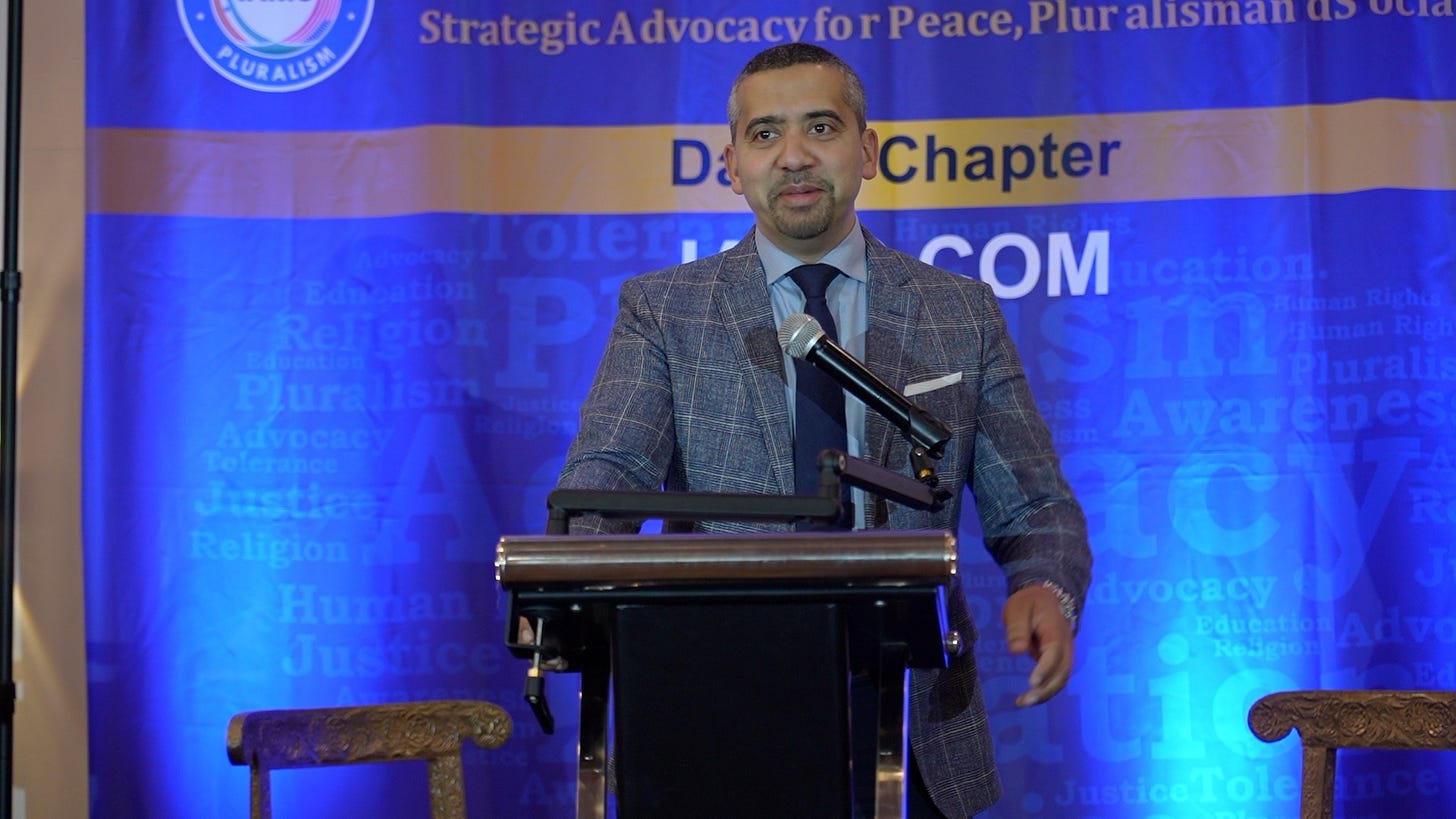Texas Congressman Tells Muslim Journalist to Leave U.S. After Religious Freedom Exchange Sparks Backlash
Texas Republican Representative Brandon Gill sparked intense discussion about religious liberties when he told British-American journalist Mehdi Hasan to return to the United Kingdom during their intense argument about mosque loudspeakers and American prayer calls. The X social media platform confrontation has sparked fierce criticism from civil rights organizations while exposing current disputes about Islamic presence in American society.
The conflict started when Gill shared a video from End Wokeness, which showed Hasan defending American Muslims’ right to broadcast mosque prayers through comparison with Christian church bell ringing. Gill responded by accusing Muslims of moving to the United States “en masse” to “fundamentally transform the landscape of American public life”.
“If You Want to Live in a Muslim Country”
Hasan countered by noting the irony of Gill’s xenophobic stance, pointing out that the congressman is married to Danielle D’Souza, daughter of Indian immigrant and conservative commentator Dinesh D’Souza. Gill exposed his prejudice by making an explicit declaration.
The original video, which caused the controversy, showed Hasan directly addressing American Christians when he said, “You can play church bells, so you should be able to play the Islamic call to prayer. “We are as American as anyone else, and we don’t take any BS from anyone”.
Pattern of Islamophobic Rhetoric
Gill serves as the representative for Texas’s 26th Congressional District, which includes most of Denton County in the Dallas-Fort Worth metropolitan area, since his January 2025 swearing-in at age 30. His district includes at least one mosque, the Islamic Society of Denton.
The congressman also joined conservative outrage over a video showing New York City mayoral candidate Zohran Mamdani, a Muslim, eating with his hands—a common practice in many cultures. Danielle D’Souza Gill became involved in the controversy when she showed how to eat rice with a fork despite her Indian heritage.
Constitutional Questions and Religious Freedom
The exchange raises fundamental questions about First Amendment protections for religious freedom and the right to free exercise. The Constitution explicitly protects the right of all religious communities to practice their faith, including through audible expressions such as church bells and the Islamic call to prayer, known as the adhan or azan.
The Religious Land Use and Institutionalized Persons Act of 2000, which Congress passed with bipartisan support, provides additional safeguards for religious organizations to prevent land-use and zoning discrimination.
Broader Context of Anti-Muslim Sentiment
The Trump administration faces criticism from civil rights organizations, which say Islamophobia has intensified during his second term. The Council on American-Islamic Relations reported a record 8,658 complaints of anti-Muslim and anti-Arab incidents in 2024, marking a 7.4 percent increase from the previous year and the highest number since CAIR began tracking such data in 1996.
The mosques throughout Gill’s wider area have experienced both property damage and safety incidents. Multiple hate incidents targeted Austin mosques through graffiti and threatening symbols, which damaged Islamic centers during 2024 and 2025.
Political Ramifications
The exchange with Hasan marks the current point in a chain of disputes that have become central to Gill’s time as a congressman. His father-in-law, Dinesh D’Souza, defended him in a previous controversy over multiculturalism by noting he himself has “written against multiculturalism and in defense of Western civilization for 30 years”.
Democratic lawmakers, including Representative Mark Pocan of Wisconsin, have called on House Speaker Mike Johnson to address Gill’s rhetoric. After Gill’s February comments about Omar, Pocan wrote, “Please rein in your caucus before we are compelled to take further actions. This is humiliating and disgraceful.”



